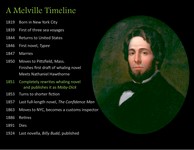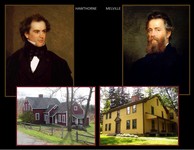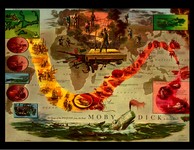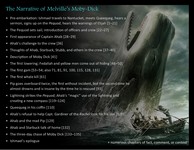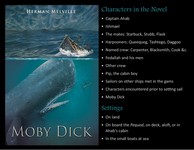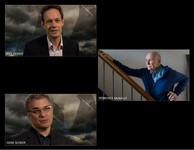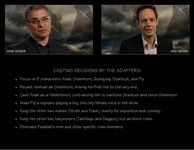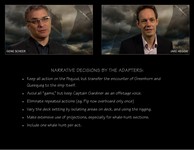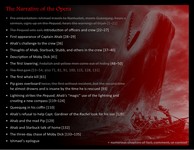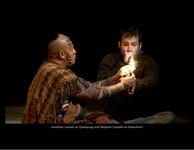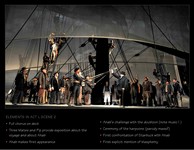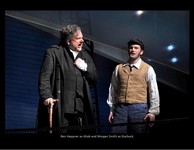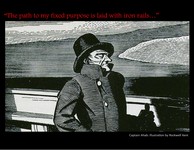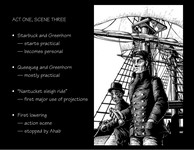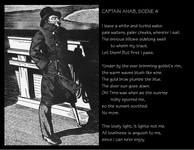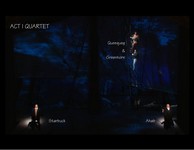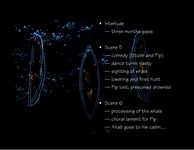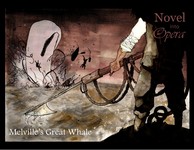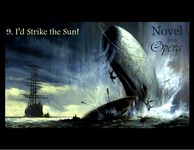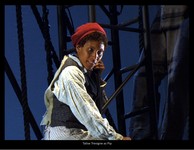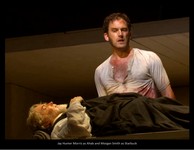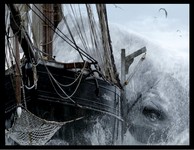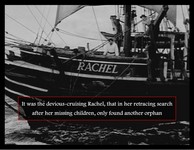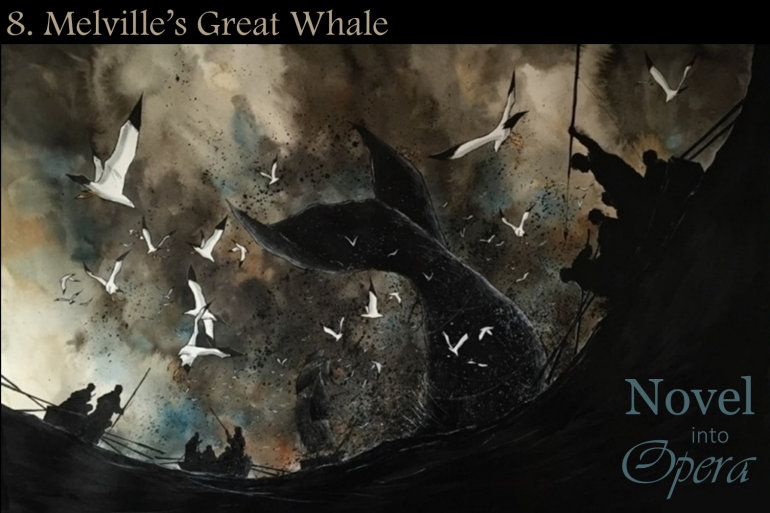8 & 9. Moby Dick.
Turning even a short novella into an opera always involves cutting, but that is nothing compared to the
daunting task of compressing Herman Melville's 800-page novel Moby Dick (1851). But in some ways,
composer Jake Heggie and librettist Gene Scheer may have found it easier in preparing their 2010 opera,
for it was no longer an agonizing decision about what to cut out, but the surely-simpler one of what to
keep in. Calling on a video interview with Heggie and looking closely at the opening scenes of the
opera, we shall compare their remarkable achievement to the Melville original.
One result of presenting Melville's book in terms of live singers on the stage is to emphasize that Moby-Dick
is less about the hunt for some whale than the conflict between human beings, their personalities, and religious
beliefs. In the second class, we shall finish watching the complete opera in the 2012 production from San Francisco,
but now in longer sections with fewer comments, to appreciate its cumulative power as this human tragedy draws towards
its inevitable conclusion.
This web page covers both classes. There is no handout of the usual kind. Instead, please read the booklet
About the Book above. It contains a brief summary of the Melville
novel, together with some questions to consider in seeking to adapt it as an opera. Immediately after the first
class, I shall substitute a different version of this booklet and add a similar one about the opera, both reflecting
the decisions that Heggie and Scheer actually made in creating the work we shall be watching. rb.
PREPARING FOR THE CLASS.
If you have not already read the huge Melville book, I imagine it's too late to do so now. The excellent
Wikipedia article will probably tell you
much more than you need to know. I strongly recommend
Why Read
Moby-Dick? by Nathaniel Philbrick, a superb companion that parallels the text in a series of short essays on
topics that are always stimulating and often surprising—besides which it is short (around 2 hours) and entertainingly
written. And there is always the
1956 film by
John Huston starring Gregory Peck, with script by Ray Bradbury; it can be rented through Amazon at the above link.
Whatever way you do it, it would be helpful to refresh your memory of what is going on, and why it is considered
such a great novel.
I also attach a complete one-page chapter from the
Melville (XXXVII, Sunset) as a sample of his style. Read it before class if you can, as it is the basis for one of Ahab's
arias that we shall be studying.
The script, images, and video links will be posted immediately after the first class.
